We at Shree Ramkrishna Charities believe that every child is unique and can be groomed to achieve greatness in life. Because we believe every child in India has the equal right to get high-quality education irrespective of background, caste, color, race, or any other factor.
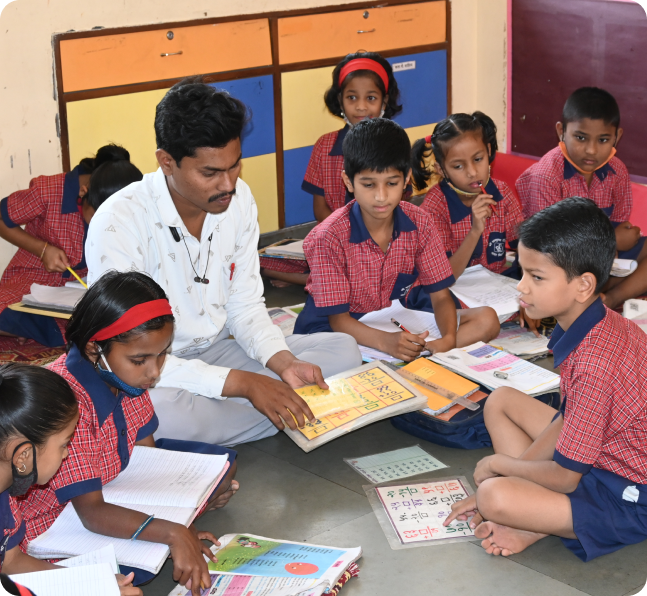
Shree Ramkrishna Charities (SRC) was established in 1969 in Mumbai, India, and is one of the few effectively running education NGOs. It started with educating just five students from a village near Wai, District Satara, Maharashtra, India. And the figure has grown exponentially to include 2560 children from more than forty schools to date under the Rural Child Education Campaign in India. Today more than 40,000 children have benefited from the services provided by SRC under the Rural child education campaign.
After the formation of Shree Ramkrishna Charities and awareness of the appropriate method of education growth, the trustees decided to follow a different approach to teaching methodology that involved a more hands-on experience and a practical learning approach for the students. A new school based on a fresh model named Bharat Vidyalay was started that could be pursued as a model school. The school is based in the village of Shahabag, Taluka Wai, District Satara, Maharashtra (85 km or 53 miles south of Pune) in 2003.
The new approach to teaching showed exemplary results, and it served as a model for all the neighboring schools. Bharat Vidyalay has excellent facilities along with a dedicated set of volunteers and teachers. The staff and volunteers are self-motivated and trained in state-of-the-art methods and are completely devoted to providing these students with the best learning experiences.
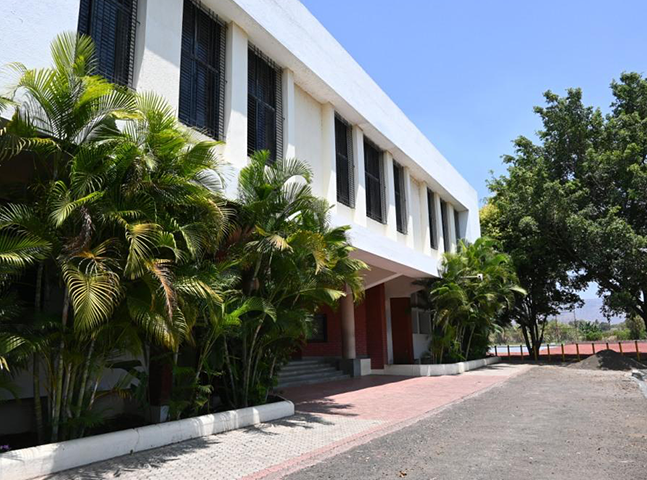
The innovative Subject Lab concept is a learning methodology that aids in effectively strengthening the learning process and has proved to be an excellent idea in helping to improve the knowledge quotient of the students.
The approach behind the concept of the Subject Labs is that each subject is a Science in its own way and has its own developmental trajectory. These labs could be very useful as extensions of present classrooms for the students to gain experiential knowledge that is designed in a way, that keeps in mind the education and rural development aspects of the holistic approach to learning.
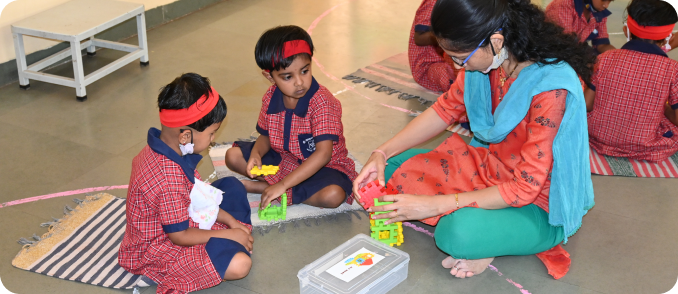
In our approach to education, writing begins only in the 1st grade. However, a lot of pre-reading and pre-writing experiences such as threading the needle, putting seeds and beads on shapes, sight-reading, etc. are provided to create a background for the same. These help in the motor development of the child.
The school lays great emphasis on teaching subjects holistically with a system as a whole approach. The project method is used for the same.
The use of blackboard is minimized, and all teaching goes from actual hands-on concrete work to abstraction. Even abstract subjects like history & geography are made experiential by arranging field trips, enacting plays, tracing one’s own history, etc.
The school tries to minimize the role of a teacher as the controller and driver of the educational process and instead makes the teacher just a facilitator trying to scaffold the learning.
All threats in the form of punishments are banned in the school. The teacher is more of a friend, philosopher, and guide.
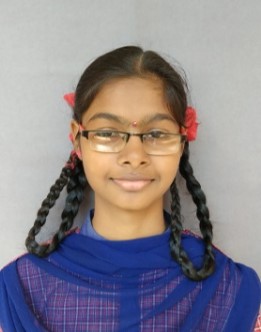
Jamdade Dhanashree Sudhir
(98%)
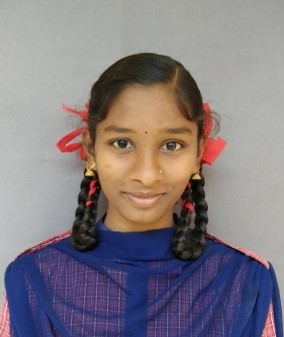
Swami Shivanjali Irayya
(94.80%)
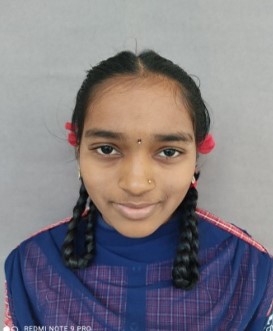
Dhaygude Sakshi Anil
(91.20%)

• For millions of children in India’s villages and urban slums, quality education is an unattainable goal. The government of India is implementing many schemes for the same which are slowly showing results.
• The largest number of the educationally deprived group lives in India’s villages where 70% of India’s total population of 1.30 billion lives.
• This is an intolerable situation for a country with one of the world’s fastest growing economies, as well as for the well-being of tens of millions of potentially productive young men and women and their families in India.
• Future global economic prosperity and the prospering of the world’s largest democracy are dependent on the education of many millions of today’s young Indian school children.
• It is with this enormous need in mind that the Shree Ramkrishna Charities (SRC) has been created.
Per capita income per month is extremely low for rural areas. Providing quality education to children is beyond the reach of parents. This results in the rate of dropout of students before attaining proper education for employability. This creates a long-lasting and devastating effect on society.
This is likely to create feelings of inequality in the society leading to unnecessary conflict, increase in crime rate and violence resulting in depriving the society of a potential source of energy and capability. This also has an impact on the future of the nation.

Subscribe to our newsletter to get the latest updates about the new developments in school and be part of our Bharat Vidyalay family. We look forward to your long-term association.



